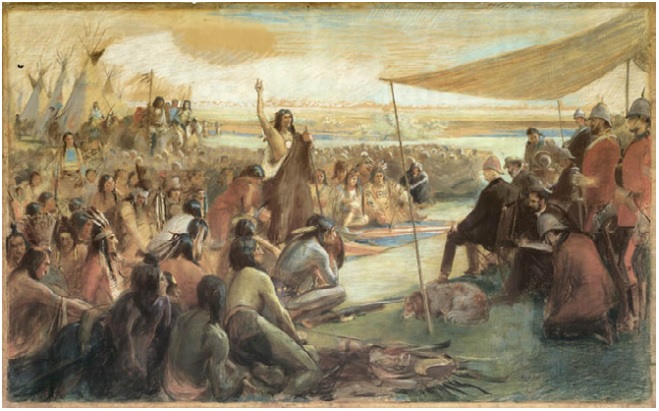Autonomy for individuals and families was built into traditional Indigenous governance structures, and explicitly built into the historical treaties through an annuity payable directly to every man, woman and child in bands signing the treaties. However, since the early 1970s, individual rights in First Nations communities have been completely overwhelmed by the rapid expansion of collective rights to the point where individual empowerment barely exists at all.
An examination of the intent of the annuities at the time the treaties were signed reveals that First Nations headmen and negotiators intended the annuity to be linked to the value of the traditional lands ceded, and that the annuity would increase over time to provide livelihood assistance and give individuals and families a degree of autonomy and empowerment within the collective. However, the $5.00 annuity paid in cash to a Treaty individual in 1880 remains frozen in time, so that in 2018, annuity recipients are still receiving $5.00.
The Treaty Annuity Working Group brought the issue to light in 2002, questioning why the annuity—the single provision in the treaties intended to provide individual empowerment—remains the only key treaty benefit yet to be modernized. First Nations leaders, who had previously shown no interest in annuities, suddenly saw the potential of an increased, land-value based annuity as an opportunity to collect arrears through the courts—for the collective. This has led to a considerable confusion over whether annuities are an individual right or a collective right, with the federal Indigenous Affairs department declaring in 2017 that it is both. As ordinary First Nations people have no political voice to advocate for individual rights, the single provision for empowering individuals and families under the treaties risks being lost altogether, subsumed by the overwhelming power of the collective.
Read the entire PDF here: FB124_TreatyAnnuityRight_SP2018_F2


